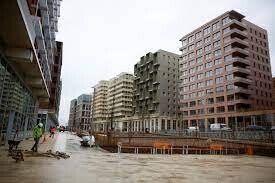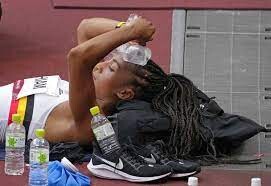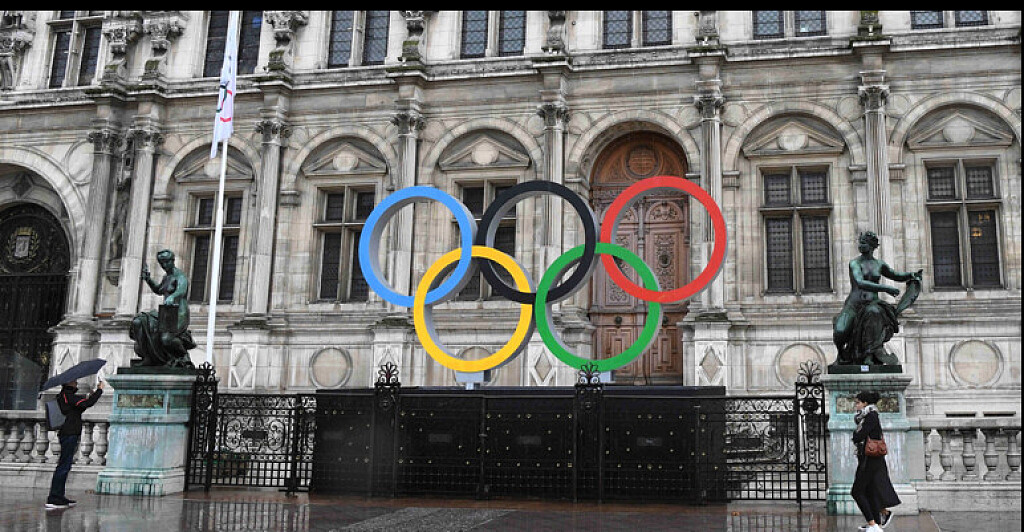Running News Daily
Running News Daily is edited by Bob Anderson. Send your news items to bob@mybestruns.com Advertising opportunities available. Train the Kenyan Way at KATA Kenya and Portugal owned and operated by Bob Anderson. Be sure to catch our movie A Long Run the movie KATA Running Camps and KATA Potato Farms - 31 now open in Kenya! https://kata.ke/
Index to Daily Posts · Sign Up For Updates · Run The World Feed
Athletes at This Summer’s Paris Olympics Won’t Have Air Conditioning
An innovative cooling system to combat climate change will be used instead. Eliud Kipchoge says he’s on board.
During the summer, Paris—a city known for sparse air conditioning—can become extremely hot. With thousands of Olympic athletes set to hit the city this summer in late July and August, Paris hopes to tackle the problem of keeping them all cool with an underground solution.


Games organizers plan to install a water-cooling system underneath the Olympic Village to bring relief from the heat without needing air conditioning systems, a move aimed at battling global warming.
“I want the Paris Games to be exemplary from an environmental point of view,” Paris Mayor Anne Hidalgo said last year. Hidalgo hopes to help combat climate change with a plan to drastically reduce greenhouse gas emissions and make Paris carbon neutral by 2050.
One of the plan’s biggest fans is two-time Olympic champion Eliud Kipchoge. The Kenyan runner has been vocal regarding environmental justice, climate change, and the greater impact of global warming.
“It’s a good thought, because we all need to reduce our carbon,” Kipchoge told the AP.
Kipchoge called on his fellow athletes to reduce their carbon footprint during training, competition, and everything in between, saying, “We are all going to go through the same scenario.”
In 2013, Kenyan officials pointed to climate change affecting their athlete’s training and subsequent performance in the previous year’s Olympic games.
For the duration of the games, from July to September, the village, just north of Paris, will be home to more than 15,000 athletes and officials and 9,000 Paralympians. Plans include turning the village into an eco-friendly, zero-carbon residential neighborhood as soon as 2025.
To combat the intense summer heat in France, a geothermal energy system will cool the athlete apartments in the Seine-Saint-Denis suburb. This technology utilizes natural resources and is expected to reduce carbon impact by 45 percent compared to traditional air conditioning systems. The system will maintain a temperature below 79 degrees Fahrenheit during the night, even in the event of a heatwave, according to Laurent Michaud, the director of the Olympic and Paralympic Villages.
Organizers conducted tests in top-floor rooms facing south with direct sun exposure on two sides. They also factored in wind directions and Seine water temperature and collaborated with France’s national weather agency to forecast temperatures accurately.
“Despite outdoor temperatures reaching [106 degrees Fahrenheit], we had temperatures at [82 degrees Fahrenheit] in most of these rooms,” Michaud told the AP. “In other rooms, we clearly had lower temperatures.”
Michaud says the buildings are also built with special insulation to retain the coolness obtained overnight. Athletes must follow basic rules like keeping window blinds closed during the day to maintain a cool temperature inside.
With the special technology in place, Hidalgo says she is against athletes bringing their own air conditioning with them—aside from those with special needs—although they are technically allowed to bring them.
“I can assure you that we will not change course and that there will be no changes to the construction program of the village regarding air conditioning,” Hidalgo said.
by Runner's World
Login to leave a comment




